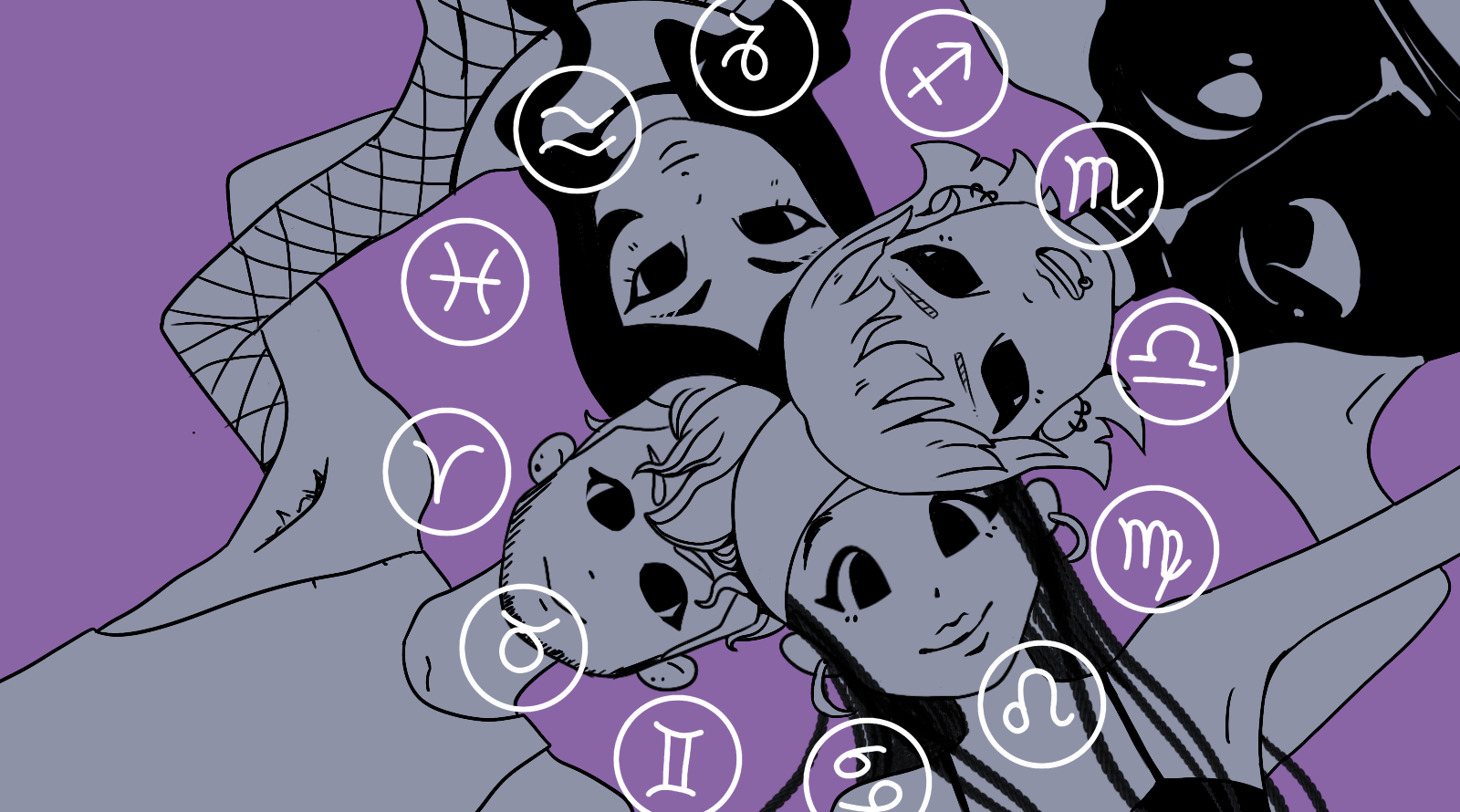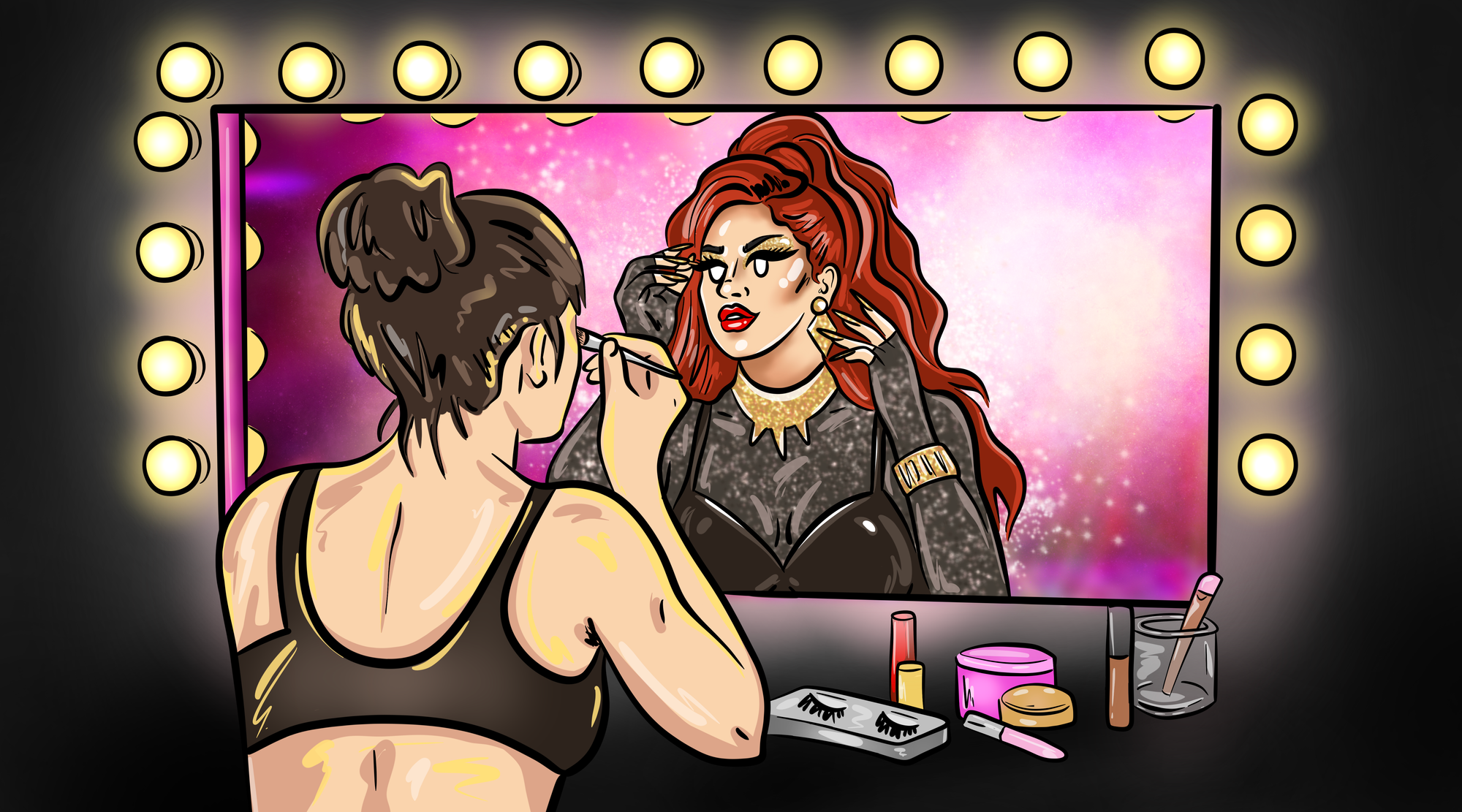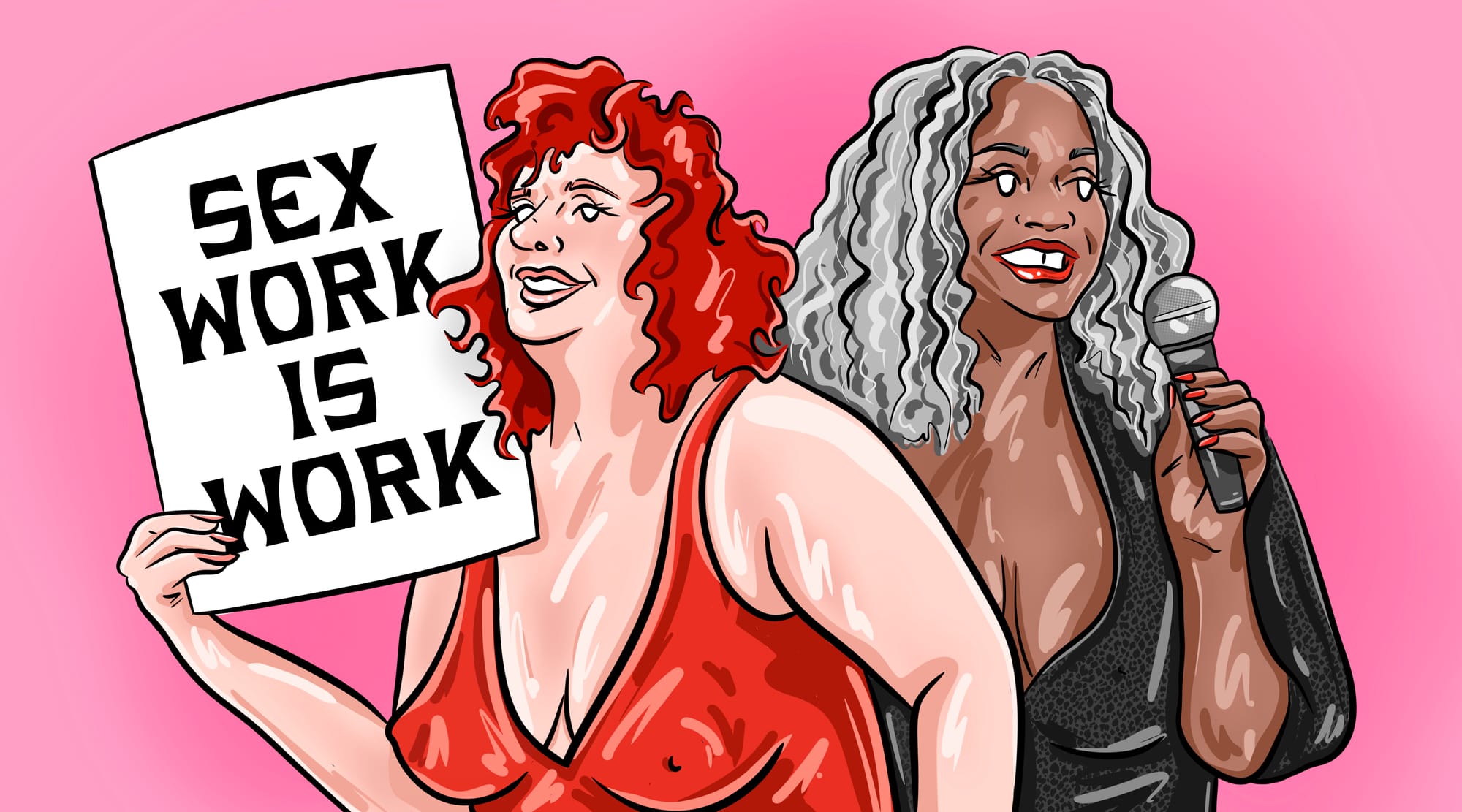Editor's Note: this piece contains mention of incest in mythology.
Whilst navigating the stigmatized world of sex work, finding strength and protection can be a daily challenge; inspiring me to turn to the ancient wisdom of the Dark Goddess. The Dark Goddess is a feminine deity or archetype associated with what is hidden in the shadows; the unknown and the unseen, and the cyclical nature of life, death, and rebirth. She embodies many of the qualities typically associated with the feminine, but with a more intense, and sometimes frightening tone. Lilith and Hine-Nui-Te-Pō are Dark Goddesses archetypes who embody the strength, resilience, and transformation required to navigate the sex work industry. Their stories speak to me in a way that makes me feel I am not walking my sex work path alone. Through embracing their wisdom, I've discovered a deeper sense of agency, self-acceptance, and spiritual resilience.
Lilith “The Succubus”
A name I am sure many are familiar with, Lilith is a figure who defies patriarchal norms and expectations. I can’t pinpoint the exact moment in my life where I became aware of Lilith and her story. She has always been present in my life - lurking in the shadows, waiting for me to embrace her teachings. Many have had Lilith introduced to them as a demonic figure. She has served as a cautionary tale to women; if you don’t submit, you will be cast out and demonized. Under patriarchal readings of this figure, Lilith is presented as an evil harlot whose sexuality is so unhinged that it causes marital disruption wherever she goes. She is accused of seducing innocent, unsuspecting men in their sleep, presenting her sexuality in a predatory nature. The villany thrown towards Lilith echoes how I feel my sex work has been perceived.
Sex workers are often accused of being homewreckers – a convenient narrative that absolves men from taking any responsibility for their infidelity. Throughout my career as a sex worker, I have seen a variety of married men. In many cases, they have disclosed to me that they are seeing me behind their wives backs. And, in many cases, these clients have projected their guilt onto me by accusing me of casting some sort of sexual spell over them. It amuses me how much power these clients grant me through rejecting their own role in their infidelity. Am I really some irresistible temptress capable of seducing even the most loyal husband? Am I really a powerful succubus who married women should fear? It is not the husband's fault, he’s just an innocent victim of seduction! I’m the sinister harlot who destroyed your marriage, right?
In reality, I’m really not that powerful. If it wasn’t me, it would have been another sex worker. I’m not a succubus, I am just a woman who has commodified men’s apparent “need” for sex. And, like Lilith, it is much easier to paint sex workers as being tempting seductresses than it is for men to claim responsibility for their sexual pursuits. Of course, our patriarchal society eats this narrative up: men’s sexual needs are innocent and women’s sexuality is monstrous.
Hine-Nui-Te-Pō “The Great Woman of the Night”
Like Lilith, I see parallels between Hine-Nui-Te-Pō and the experiences of the sex worker. The Great Woman of the Night, Hine-Nui-Te-Pō is the Māori Goddess of Death, and her story is filled with tragedy and self discovery.
The daughter of the Atuha (God) of forests, Tāne Mahuta, and “the first woman” Hineahuone, Hine-Nui-Te-Pō was given the name Hinetītama, the “Dawn Maiden”. Tāne weds his daughter, Hinetītama, and together they bear many children. All the while, Hinetītama is unaware that her husband is also her father. When she does eventually discover the truth, to say she is mortified is an understatement. Consumed by shame, Hinetītama descends into the darkness, the “underworld”, where the light can not illuminate her humiliation. There she transforms herself into Hine-Nui-Te-Pō, where she waits to be reunited with her children upon their death. Her new-found role is important in the cycle of life, death and rebirth, making her a powerful and respected (as well as feared) Atuha.
I have always found it intriguing how the actions of her father/husband causes Hine-Nui-Te-Pō to feel shame, when she did nothing wrong. It is Tāne who should be ashamed. He kept this truth hidden from his daughter, which hints at him knowing his actions were harmful. Instead, she carries the weight of his shame so much so that she feels the need to hide, reinventing herself entirely. To me, this echoes what happens when women decide to become sex workers. One minute, we are our father’s daughters, and then suddenly, we are their shame. Many of my sex work friends who identify as women are too ashamed to tell their fathers about their chosen profession. Many of us (myself included) have grown up with fathers who have tried to police our bodies. I have always felt that fathers who do this are projecting their own views of women’s sexuality onto their daughters. Their own shame of seeing women as sexual objects is exemplified when they themselves have a daughter who they know other men will view through the same lens they view other women. Perhaps Tāne felt this, too. Perhaps that is why he married his own daughter.
The shame Hine-Nui-Te-Pō felt upon discovering her paternal roots was not her shame, nor is it sex workers who should feel shame for how others perceive us. Yet, we are still forced to hide. Like Hine-Nui-Te-Pō, we have to change our names in order to keep the “shame” away from our birth names. Our businesses are kept hidden from society. We are on the streets lurking in the dark, in brothels with no windows; we live on the outskirts of society. We represent the “shadow” of humanity, the aspects of being human that we like to keep hidden: sex, pleasure and our desire for it. Instead of people unpacking their internalized shame over sex and pleasure, sex workers are forced to carry the burden of society's shame.
Finding Solace in The Dark Goddess
There are days where the hatred of sex workers can feel so overwhelmingly noisy, especially from sex work exclusionary radical “feminists”. I feel shunned from certain “feminist” spaces. I feel misunderstood by SWERFs, villainized to a point where I feel they hate me for being a sex worker more than they hate patriarchy. As a result, I don’t always know where I belong. But through embodying the themes explored in the story of Lilith and Hine-Nui-Te-Pō, I have found a sense of self sovereignty (mana motuhake). Like Lilith, I know that I do not belong in spaces where I have to compromise my autonomy in favor of maintaining the status quo. Like Hine-Nui-Te-Pō, I am not afraid of stepping into my power by abandoning situations that place shame upon me for the actions of others. The Dark Goddess is with me. She is with all sex workers who have felt cast out from society, carrying the burden of others shame. We do not walk this path alone.
He waka eke noa; we are all in this together.
Are you a sex worker with a story, opinion, news, or tips to share? We'd love to hear from you!
We started the tryst.link sex worker blog to help amplify those who aren't handed the mic and bring attention to the issues ya'll care about the most. Got a tale to tell? 👇☂️✨




